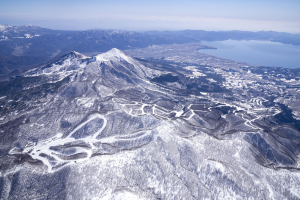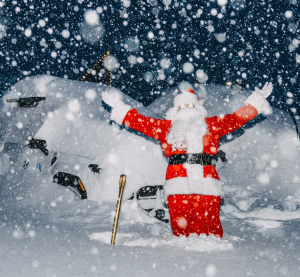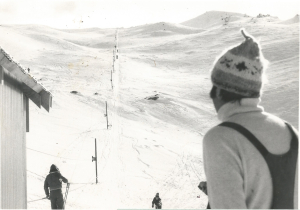Mountain Joy – A Film About Pain By Nat Segal. Video & Interview
January 15th, 2025
Mountainwatch | Reggae Elliss
Nat Segal has enjoyed a long career as a pro skier, the Australian freerider making a name for herself on the Freeride World Tour before moving into filming and content production. Nat has been living in Revelstoke for six years, a move she made so could live in the mountains year round, but for the last few years she has been managing chronic pain
Mountain Joy is a a short film that follows Nat as she learns to deal with that pain, later diagnosed as ankylosing spondylitis, and explores the challenges of navigating and managing a chronic disease while being active for a living.
Reggae Elliss spoke to Nat recently about the film and how she is dealing with managing AS.
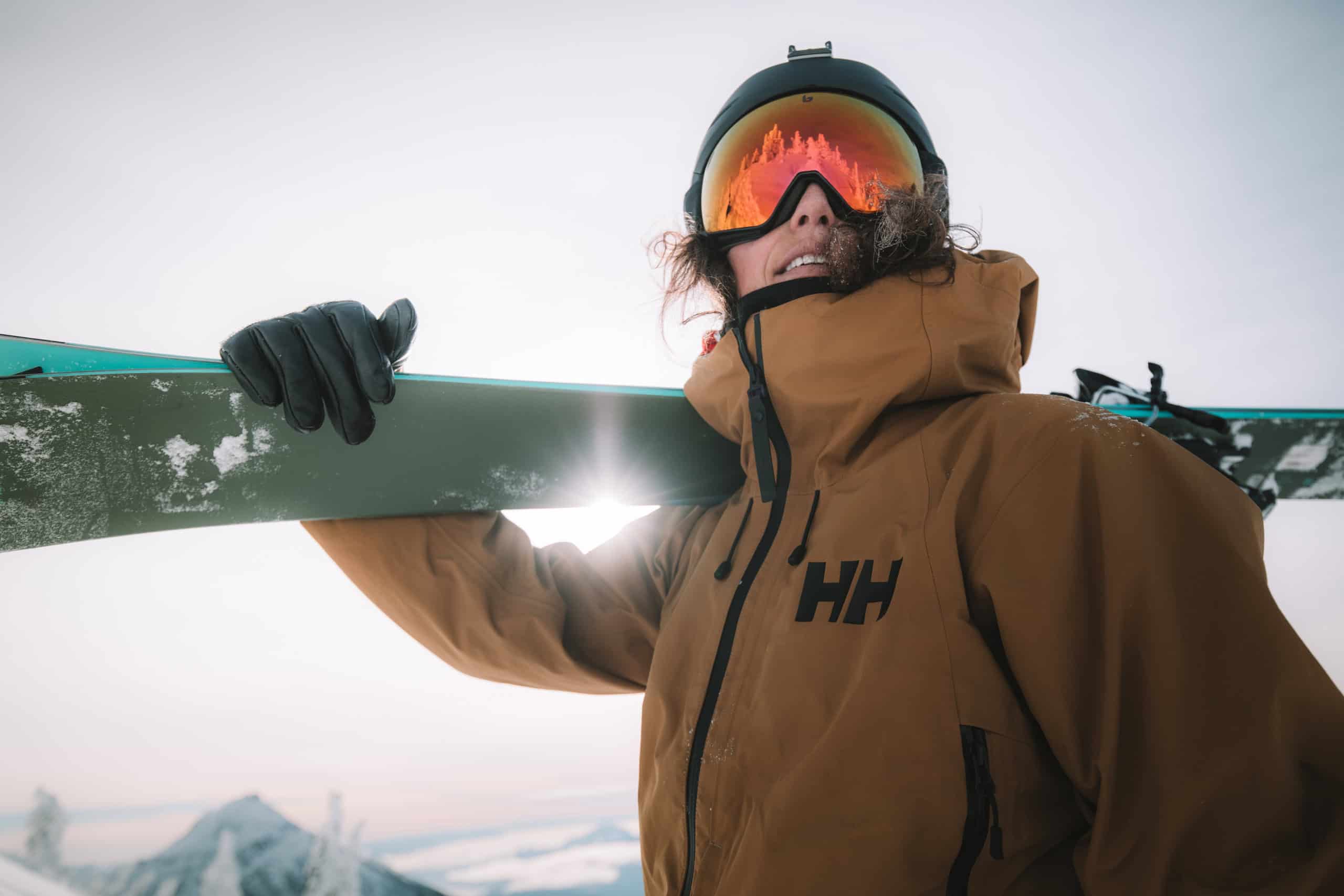
Congrats on the film Nat. How did it come about? What is your aim in telling the story?
Thanks Reggae! My aim was to start a conversation about how we perceive and talk about pain in the outdoor industry. I think most people can relate to a time when their physical or mental health has held them back from being outdoors and have suffered frustrations with dealing with this. There is a lot of shame around being injured or incapacitated, however I think the more we talk about it, the easier the process of recovery or management can be.
How long have you been dealing with AS? When did it become chronic – leaving you on the couch? Has it been getting progressively worse over the past few years?
I am not entirely sure. I started really dealing with chronic pain in spring 2020, which I severely struggled with until I was properly diagnosed but I had been having flare ups since at least 2017 but never had been able to associate them with anything beyond a bulging disc that occured when I was 19. I was officially diagnosed in ankylosing spondylitis in 2022 and the journey really started from there.
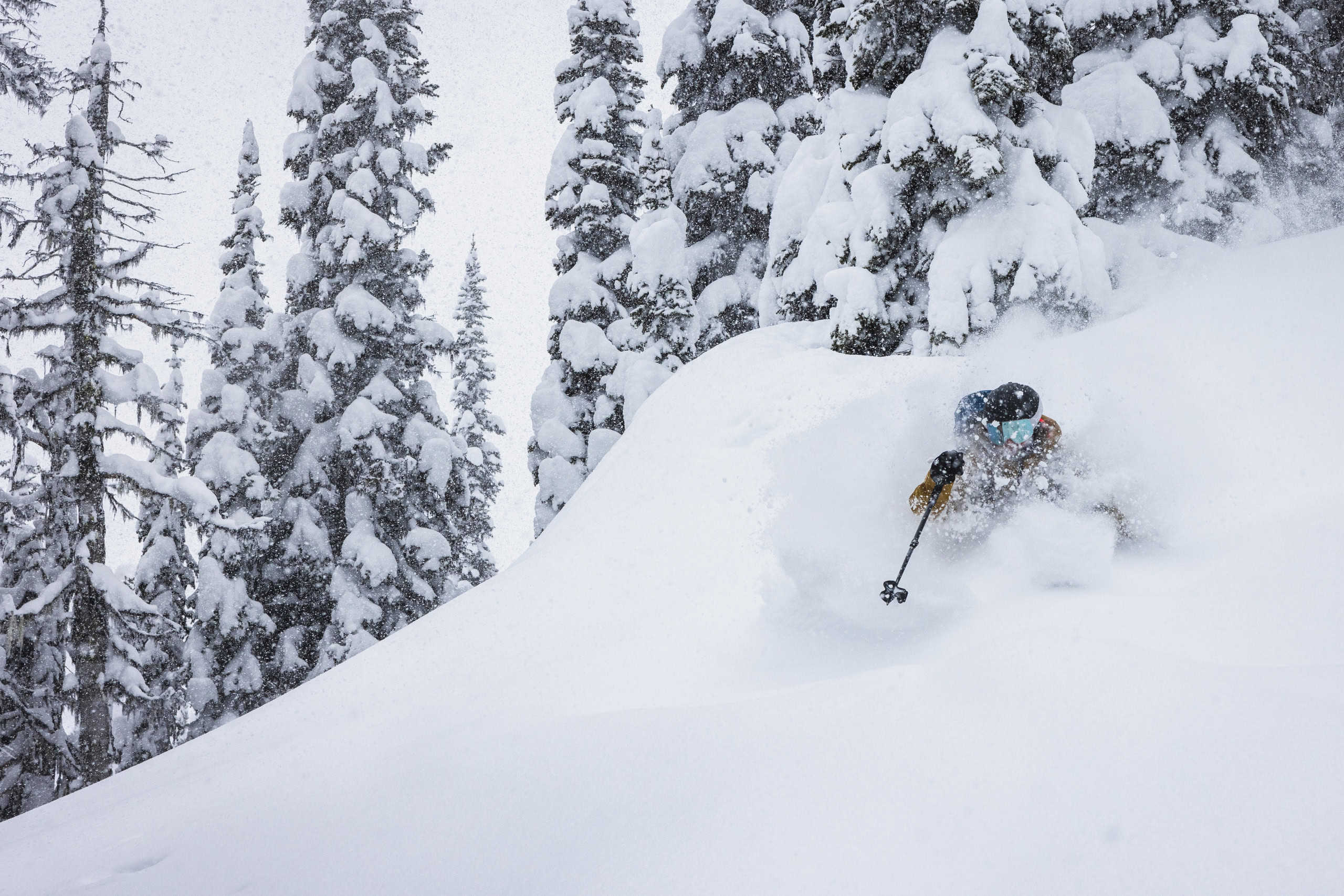
Pain is lonely – how did those close to you deal with it?
I think it was hard for my close family and friends. Pain became an obsession and it was sometimes all I could think about. People close to me did their best to support me but I think the most important support came from some well-timed tough love from my family and partner. They did their best to hold me up but they also were very honest when I noticeably started to slip into depression and obsession.
In the film you say that thinking of the joy of skiing would pull you from your dark thoughts. How did you cope with not being able to ski and be in the mountains?
Initially I really struggled with not being able to spend time in the mountains. I moved to Revelstoke, BC in 2018 with the expectation of living close to the mountains to ski, hike and climb. My AS symptoms increased dramatically in the first few years of living in Canada and at times I really questioned whether I would be able to ski in the future.
Initially I ignored my systems and tried to ignore the pain but finally I realized I needed to take a big step back from mountain sports. However I refused to fully quit skiing. Instead I had to change how I approached it. I took baby steps to returning to the mountains, which started with short days skiing groomed runs, to small days ski touring. I had to rest a lot and also greatly lower my expectations of what I could do and my performance. Over the last four winters I have been able to make huge leaps forward but it took a lot of patience.
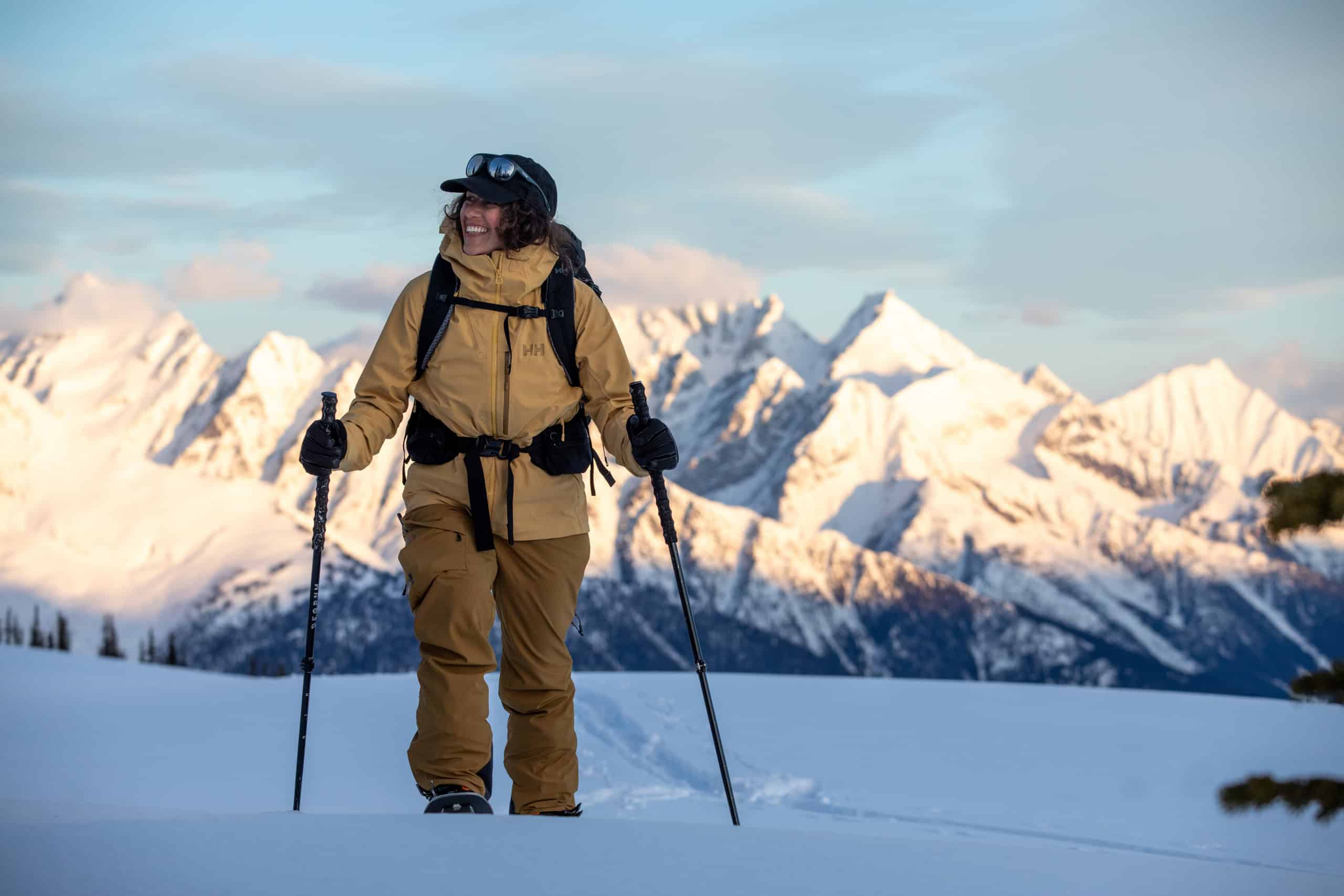
How important are skiing and the mountains for you?
I moved across the world away from my family to live in the mountains. My work and my lifestyle revolve around them. They’re pretty integral to how I live my life.
How do you manage the pain? What is involved?
I manage pain in a few ways. One of the key components is medication. Before I was diagnosed I tried all types of treatments from naturopaths to medication and physical therapy. All of it helped but my medication that directly treats AS is what helps my pain. In saying that, I have semi-regular flare ups that cause inflammation and pain. Movement, despite not wanting to move, really helps me manage this pain, along with trying to keep my stress levels low. Our nervous system is connected with pain and can be triggered and made worse by stress. It is one of the most important things I have learned through this process.
Your mindset is pretty amazing. Is it easier to say a “radical acceptance of what is…” than to do it?
Absolutely. It has been a process getting here and I have periods of regression. It’s all about practice and making good habits. I think I will be practicing for the rest of my life but it feels better than feeling sorry for myself.
How has it been this season?Is it a case of one day in, one day off?
This season has been the best in years. I had a slow start to the winter following a breast reduction in October to take some weight off my back. I couldn’t train as hard as I would previously so I took it slowly and when my symptoms flared up I just made myself rest. I am trying to ease in slowly and work towards being at my strongest performance by March when I set most of my filming and skiing goals.
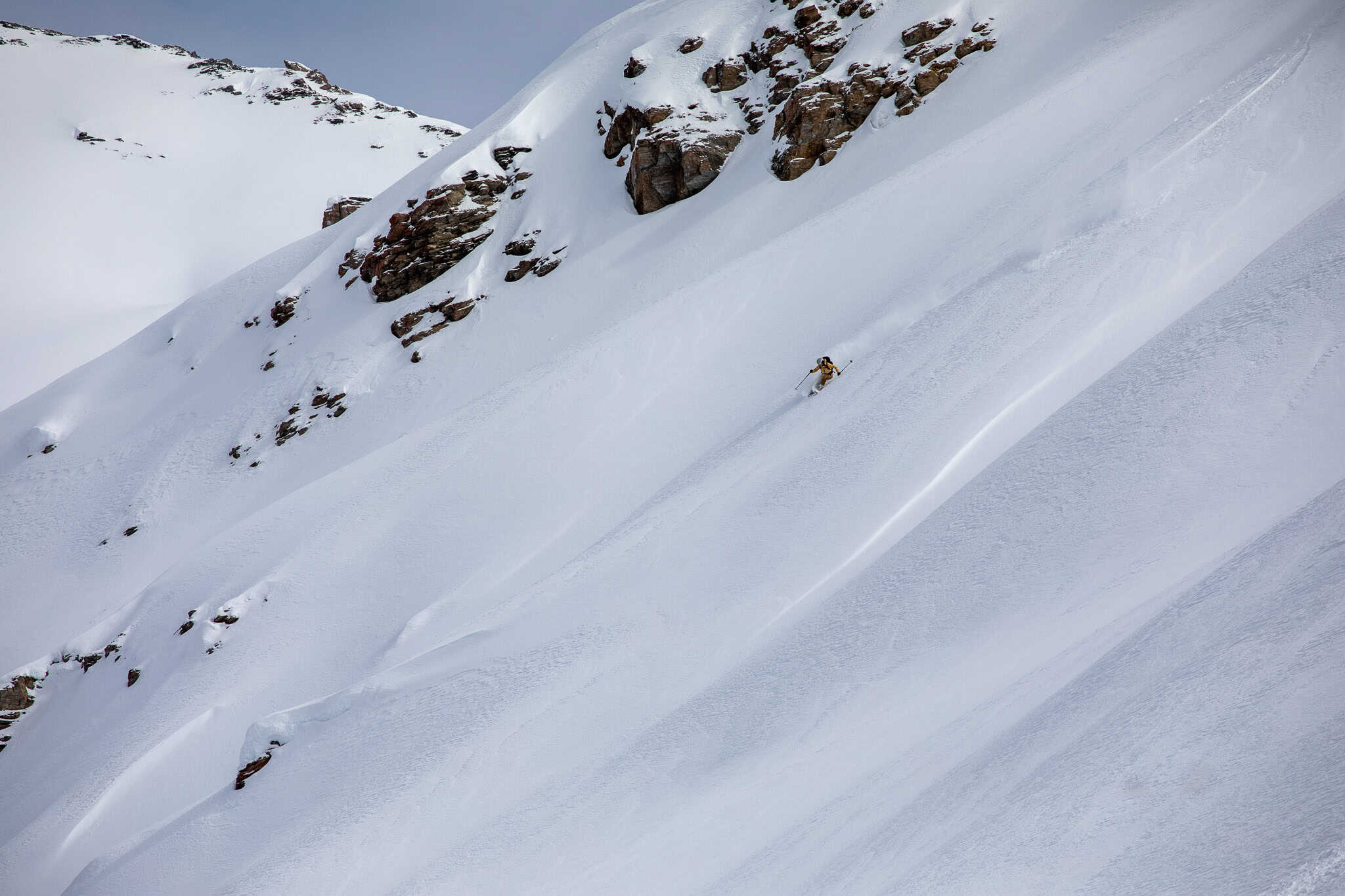
And how is the pain when you are actually skiing? Has it changed the lines and terrain you choose to ski?
Sometimes skiing is when I feel the least amount of pain. I think it has something to do with my body being relaxed in a downhill ski position, especially in good conditions. I still have quite a lot of rehab to do, the inflammation has caused a lot of muscle imbalances which I need to work on. I find jumping the hardest thing to get back, so I have taken a huge step back from hitting cliffs and jumps. I really avoid flat landings, bad light and hard landings….. something my 25 year old self would ignore.
Finally, how has the winter been so far in Revelstoke? A lot better than last year….
The start of winter has been the best in several years. We’ve had consistent snowfall in Revelstoke and at Revelstoke Mountain Resort. Unlike the last two winters things are filled in and skiing really well! It is shaping up to be a great winter.
Great, thanks for taking the time to chat.
No worries, and I’ll see you in February
